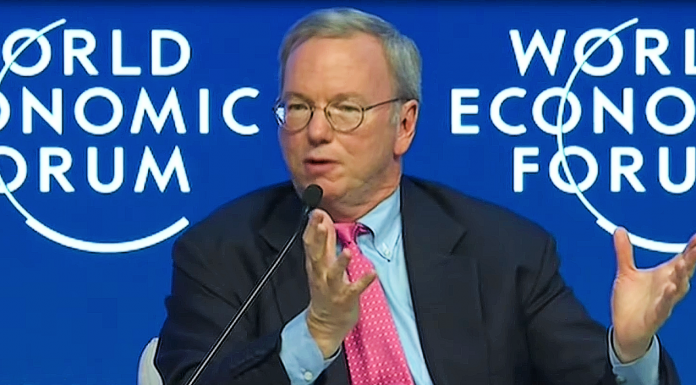President Joe Biden’s plan to soak the rich in order to fund trillions in new welfare entitlements will not be brought fully before Congress until later this month, when Democrats hope to slip a massive “human infrastructure” scheme through the Senate using budget reconciliation.
But the rich themselves have wasted no time securing their assets—by renouncing their US citizenship, according to Axios, which drew its data from a quarterly list published by the IRS.
A chart of expatriate Americans worth over $2 million showed that the number skyrocketed in 2020 to 6,707, a 237% increase from the prior year.
Both the State Department and legal experts warned that renouncing citizenship for the wrong reasons could result in unintended consequences, such as a loss of sovereign protections.
“We usually advise against it,” immigration lawyer Ashkan Yekrangi told Axios. “The bulk of the cases are individuals trying to avoid tax liability.”
However, the growing expatriation trend is one of several to signal that America’s decline and the increase of corporate globalism are, in fact, taking a sharp toll on the rights and protections traditionally afforded to American citizens.
LEFTISTS TAKE FLIGHT
The recent expats are likely include a litany of virtue-signaling leftists, who ordinarily would be quick to espouse rhetoric about the need for more government—and higher taxes to fund it.
Among those fleeing the system is former Google CEO Eric Schmidt, who was reported less than a week after the Nov. 3, 2020 election to be seeking a fast-track citizenship to Cyprus.
The previous peak, according to the IRS list, was in 2016. Roughly 5,500 citizenship renunciations occurred then, as elites presumably fled following the election of Donald Trump.
Former pop-singer Cher famously promised to move to Jupiter, although she does not appear to have made good on it, based on a planned Las Vegas residency.
@gabeAlfassy IF HE WERE TO BE ELECTED,IM MOVING TO JUPITER ?
— Cher (@cher) June 16, 2015
But while celebrities and leftist media may wish to amplify the narrative that Trump drove wealthy, cosmopolitan citizens away, the numbers tell a different story—one that leftist oligarchs would rather the public not see.
During the second term of former President Barack Obama, there was a steady uptick in expatriation among the uber-wealthy. And during the Trump administration, there was an equally steady decline leading up to 2020.
The logical implication, thus, is that many of those who fled last year may have done so as the result of Democrats seizing power with promises of burdensome tax hikes—including raising the top capital gains tax to 43.4%, according to CNBC.
Bureaucrats in the Biden State Department refused—to no one’s surprise—to comment on those leaving the country just as they have remained tight-lipped about the lower-income refugees entering the country via the southern border.
“Since embassies or websites offer appointments on a first-come, first-served basis as local conditions permit, we do not track ‘pent-up demand’ for U.S. citizenship renunciations,” a State official told Axios.
CONFOUNDING VARIABLES
While many renounced the US for tax purposes, the impact of the coronavirus on the data is impossible to determine.
Around 2,400 of the names from last year’s list appear for the quarter that ended on June 30, 2020, well before the election, when reports of coronavirus cases began spiraling out of control.
Many wealthy citizens going abroad might have fled states where lockdowns and other economy-wrecking pandemic measures were put in place, as was the case for intranational relocations within the US. The exodus from states like California and New York to more freedom-loving areas like Florida has been well documented.
Additionally, the closure of some embassies during the pandemic could indicate that far more aristocrats have attempted unsuccessfully to flee the country, due either to taxation or other restrictions on individual liberty.
According to a Poland-based tax lawyer who specializes in US expatriation for the wealthy, there is currently a massive backlog of those seeking entry to more desirable locals, such as Switzerland and Canada.
“There are probably 20,000 or 30,000 people who want to do this, but they can’t get the appointment,” said the attorney, David Lesperance. “There’s not a peak demand—the system’s capacity has peaked.”
Lesperance noted that the Canadian embassies were so backlogged it currently would take a year and a half to get an appointment.
And in the Swiss capital of Bern, the waiting list included more than 300 cases.
Some, however, say that the lists are misleading since numbers only started to rise after the 2010 Foreign Account Tax Compliance Act increased reporting requirements for expats.
And the list may also include individuals who left long ago but are only now appearing due to the slow, bureaucratic process.
“It’s not as if the latest quarter names that have come out are indicative of the current political environment or anything like that,” insisted Connecticut-based tax lawyer Andrew Mitchel.
He said the wealthy have long engaged in such financial shell games but that the FACTA regulations “effectively deputized all the banks around the world to tattletale on U.S. citizens.”
CORPORATE UNACCOUNTABILITY
While individual citizens may still be subject to IRS regulations, the push to go multinational has created an increasingly dangerous situation as China exerts its growing influence on corporate America.
Largely virtual companies, including Big Tech giants like Google, Amazon, Facebook and Twitter, have been pushing a leap into the international market, where they can avoid financial accountability and benefit from fewer regulations governing antitrust laws, for example.
Sen. Marco Rubio, R-Fla. warned in a speech Thursday before the Senate Intelligence Committee that the consequences of this trend could be devastating.
“U.S. corporations are so desperate to have access to the Chinese market that they’ll lead costly boycotts in an American state that passes a law that they don’t like,” Rubio said, according to BizPacReview. “American companies have actually fired Americans who live in America for saying or writing something that China doesn’t like.”
He warned that the influence applied not only to the business world, but also to American cultural institutions as China attempts to use its ill-gotten financial influence to create a stranglehold on every facet of American life.
“Most people don’t realize that China already has tremendous influence and control over what Americans are allowed to say or hear about them or many of the other issues in the world,” Rubio said. “Hollywood is so desperate, for example, to have their movies shown in China that Hollywood won’t make a movie that China’s communist censors don’t approve.”
LAWYERS AVOIDING THE LAW

Meanwhile, some savvy leftists have relocated to China as a way to dodge legal accountability, signaling another concerning trend, according to Just the News.
Perkins Coie, a leftist law firm notorious for being at the center of election fraud issues and representing Democrats mired in corruption scandals, claimed that because three of its partners had recently moved to China, the entire company was now above the law.
“Three Perkins Coie partners are ‘stateless’ U.S. citizens domiciled in China,” claimed the firm as part of a recent brief to avoid a lawsuit from former Trump adviser Carter Page.
Page, who found himself at the center of the “Crossfire Hurricane” Russian collusion hoax, was subjected to considerable slander and harassment, including FBI surveillance, due to the now-debunked Steele Dossier, which was commissioned by Perkins Coie lawyer Marc Elias.
Alarmingly, the legal strategy succeeded in the lower courts—although it likely paves the way for an appeal to the US Supreme Court.
“This attribution of statelessness destroys complete diversity and deprived the district court of the power to hear this case,” wrote judges in the 7th Circuit Court of Appeals.
“We acknowledge that in today’s global business environment, where multinational entities exist in every facet of commerce, this result may strike some as impractical,” the judges wrote. “But keep in mind that when … the Supreme Court decided many of its significant diversity jurisdiction cases, most of today’s business forms did not exist.”
Page said he valued the court’s analysis and would continue the fight.

